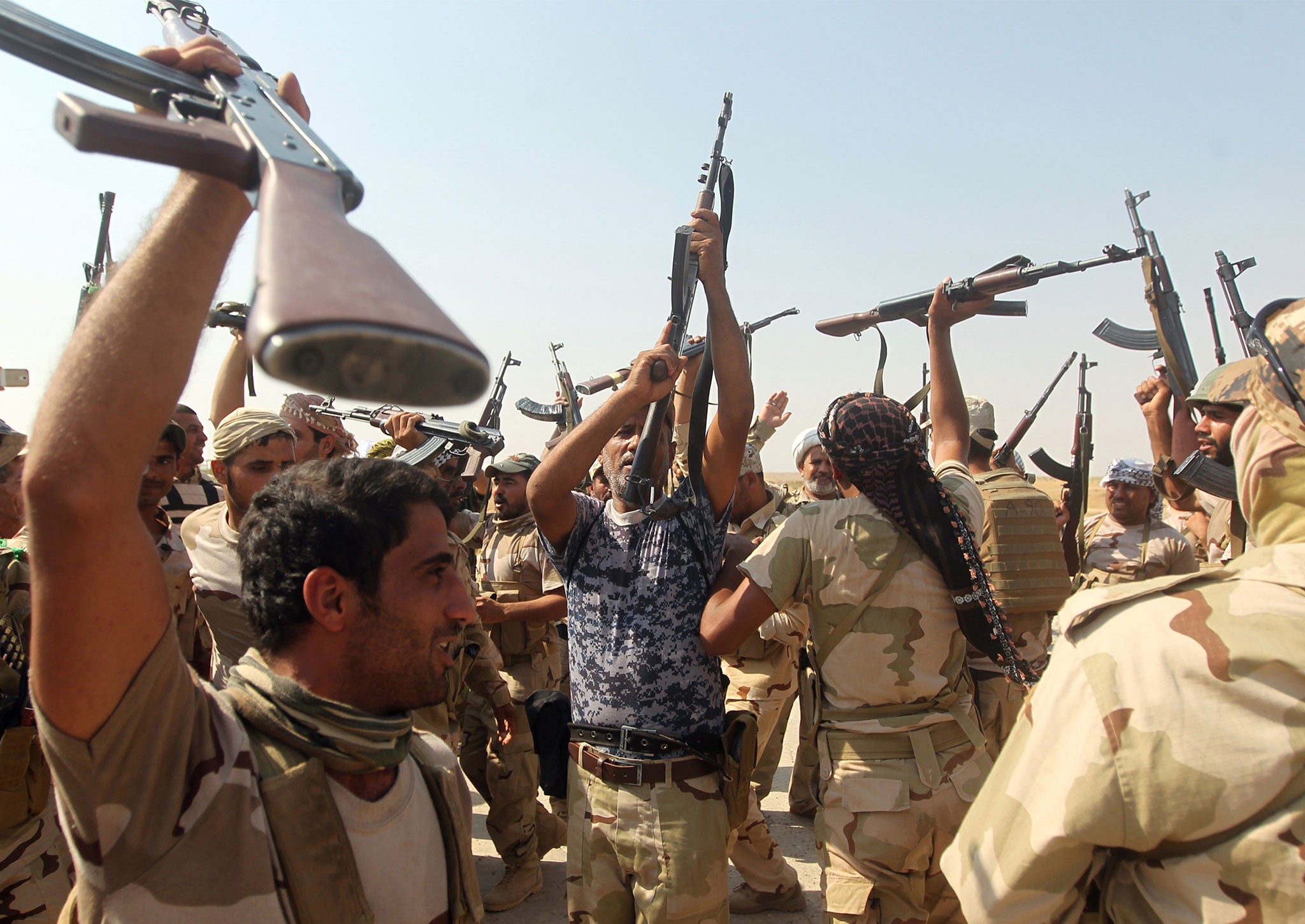Bombs can't defeat Isis, but Iraq's Sunnis can
The new Iraqi government has an unmissable opportunity to unite its people against the jihadists before they tear the country apart

Your support helps us to tell the story
From reproductive rights to climate change to Big Tech, The Independent is on the ground when the story is developing. Whether it's investigating the financials of Elon Musk's pro-Trump PAC or producing our latest documentary, 'The A Word', which shines a light on the American women fighting for reproductive rights, we know how important it is to parse out the facts from the messaging.
At such a critical moment in US history, we need reporters on the ground. Your donation allows us to keep sending journalists to speak to both sides of the story.
The Independent is trusted by Americans across the entire political spectrum. And unlike many other quality news outlets, we choose not to lock Americans out of our reporting and analysis with paywalls. We believe quality journalism should be available to everyone, paid for by those who can afford it.
Your support makes all the difference.The pledge from foreign ministers of 29 countries to remove Isis from Iraq using “any means” necessary, including military action, is a welcome development.
However, and as President Obama asserted last week, it is only local and indigenous forces than can ultimately defeat the group.
Recent history proves that international intervention is constrained when it comes to defeating radical jihadist groups like Isis, who are products of their local communities and the regional environment. In Iraq, for all its military might and presence, the US was only able to contain militants because it turned to local actors from the Sunni Arab community. They fought al-Qa'ida in Iraq and re-gained control of their communities.
Iraq can be saved again. Isis is effectively a re-branded version of the post-2003 Sunni insurgency, a coalition of disparate groups that came together to undermine Iraq's new democratic process and force the US out of the country. That means that Isis is part of a broader coalition of Sunni Arab militants and, in addition to networks of support and considerable resources, has the benefit of at least a decades’ worth of experience in effectively mobilizing the local Sunni Arab population against the Iraqi state.
Today, like the US during its occupation, Iraq’s Shia-dominated government lacks local support in the north of the country. As a result, it lacks the capacity to take on militants that draw support from an established web of interpersonal and inter-organisational links. Like the US, the Iraqi state must turn to Iraq’s Sunni Arabs and convince them to fight Isis.
The new government is well-placed to do so as it represents Iraq’s major ethno-sectarian communities. This is nothing new but it is no longer headed by Iraq’s former two-term prime-minister, Nouri al-Maliki, disdained by Iraq’s Sunni Arabs. Iraq’s problems pre-dated Maliki but his removal might help get Sunni Arabs on board.
The new government needs to hit Isis hard, and fast. Acting quickly will build on the momentum generated by the formation of a new government and will show Sunnis and the country that the state is serious about their future.
As it stands, inaction by the state and sub-standard military operations have failed to convince Sunnis that Baghdad actually cares about their fate. Inaction suggests that Baghdad and the Shia ruling elite have given up on Sunni Arabs, opting instead to secure what might be called “vital Iraq”, namely the capital, Baghdad, and the Shia provinces of the south.
Hitting Isis hard, giving them a bloody nose, at the least, will also convince Sunni Arabs and Iraqis more generally that Isis is no force for the future. Iraq’s Sunnis must be given a choice between Isis and a serious Iraqi state. They currently only have one: a radical and ruthlessly brutal resource-rich organisation that offers Sunni Arabs an outlet to express grievances, as well as the chance to remedy actual or perceived injustices.
A serious military campaign will convince Sunni Arabs to turn against Isis as well as allow weak and ill-equipped Sunni Arab forces that are willing to work with the government the space they need to operate.
In the long-term, Iraq must accept that a unified and centralised Iraq is no longer realistic. The country has already crossed the Rubicon in that respect; it did long before Isis emerged. Iraq had a pre-2003 sectarian divide that, although exacerbated by disastrous post-2003 policies, might not have been remedied even with competent US post-conflict reconstruction.
To sustain Iraq, Sunni actors must be given the opportunity to govern their own communities once Isis is contained, though not necessarily defeated. A managed but significant disconnect from Baghdad will allow for some breathing space in which a unified Iraqi identity emerges, as well as help Baghdad’s Shia-ruling elite gain some much-needed respect and trust within the Sunni Arab community.
Join our commenting forum
Join thought-provoking conversations, follow other Independent readers and see their replies
0Comments